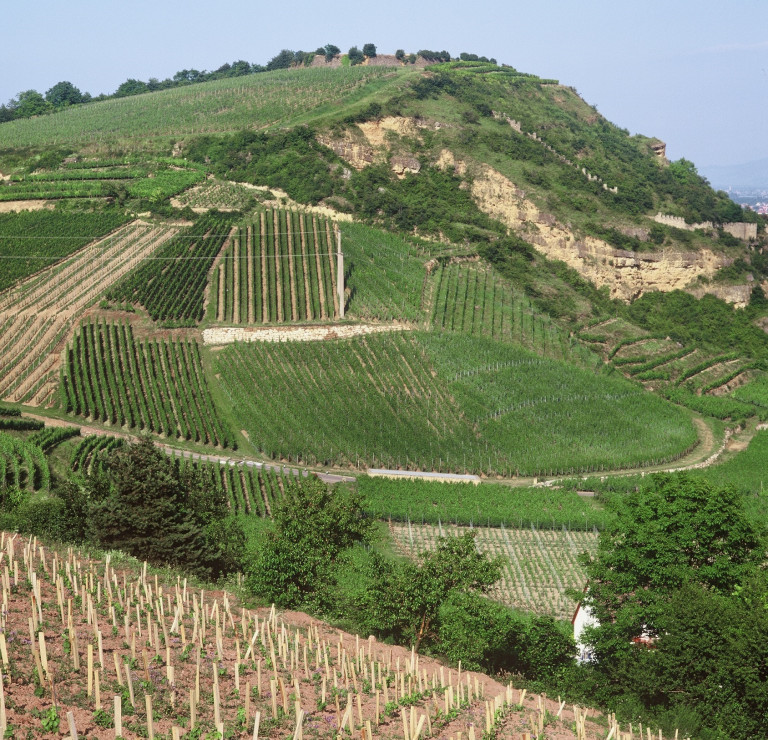
Technical presentation
| Bottling : | September 2006 |
|---|---|
| Acquired alcohol : | 12 ° |
| Residual sugar : | 240 g/l |
| Total acidity : | 4.9 g/l H2SO4 (7.5 g/l Tartrique) |
| pH : | 4.0 |
| Yield : | 8 hl/ha |
| Average age of vines : | Vineyard planted in 1983 |
| Grape variety : | Gewurztraminer |
| Terroir : | Heimbourg |
| Sweetness index : | SGN |
| Soil : | Calcaire Oligocène, Exposé ouest, Medium to steep slope |
Description of the wine Gewurztraminer Heimbourg 2005 - Sélection de Grains Nobles
The Gewurztraminer is planted on the bottom part of the west facing side of the Heimbourg. It enjoys a more protected situation from the winds, a much deeper/richer marl/calcareous soil allowing the noble rot to develop intensely in some vintages. Gewurztraminer is also a grape variety that has extremely thick skins; it therefore is more resistant to botrytis, which explains why we do produce more often SGN in the Pinot-Gris grape variety. In 2005, the intensity of the noble rot, and more importantly, the excellent weather forecast gave us the opportunity to select an SGN in this vineyard. Last time was in 1989! Since the acidity balance is perfect, we were very selective, knowing that the wine could handle a very high sugar concentration. The only drawback is that the production is microscopic: only 1000 half bottles were produced from 1 ha. The wine fermented very well for a wine of this richness and the final balance (12%+14%pot) is incredible.
Tasting notes
01/2007 : The nose shows an unbelievable delicacy: old roses, litchi, orange marmalade, candied fruits and great honeyed aromas. It is not overpowering but suggests some rich mouth to follow. The palate hides the sweetness very well behind a soft velvety structure, and, just like the nose, shows a full range of sweet fruits. The high acidity must help to balance this wine. It is delicious today, but has a life long potential.

The Heimbourg of Turckheim
The wines produced on the Heimbourg are rich, opulent, often spicy and can include noble rot. The slower ripening of the grapes often produces wines that are aromatically expressive from a young age, contrary to its neighbour the Clos Jebsal with whom we have to show patience.